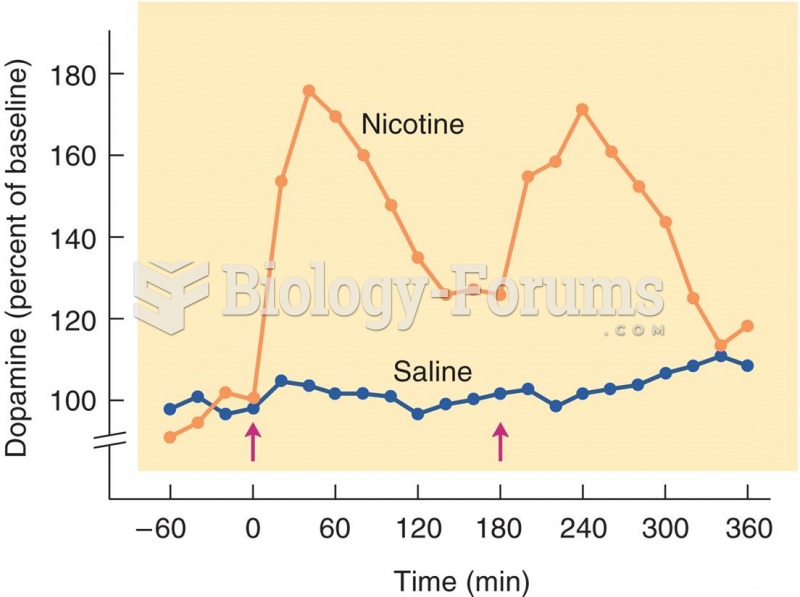Answer to Question 1
Nicotine patches supply a steady dose of nicotine through the skin. According to a nicotine-replacement patch website, the program consists of a 10-week plan with three levels of nicotine patches. The person is asked to stop smoking before beginning the program; otherwise, the individual ends up with a very high blood nicotine level. A 21-mg patch is used during the first 6 weeks of the program, followed by a 14-mg patch for 2 weeks, and a final 7-mg patch for the last 2 weeks. The intent is to simulate a gradual weaning from the nicotine with fewer side effects.
The instructions are specific, and the individual must carefully follow the instructions for the program to be effective. The website is clear that the program only works if the person is committed to quit the habit, because the patch does not override the mind. At present, evidence shows that patches are not more effective for quitting smoking than doing so without patches. However, one study showed that patches are more effective when used in conjunction with exercise. About 8 out of 10 smokers who exercised along with the use of nicotine-replacement therapy successfully quit smoking.
Public safety concerns regarding use of nicotine patchesincluding indications, precautions, warnings, contraindications, potential abuse, and marketing and labeling issuesare monitored and regulated by the FDA. People contemplating their use should pay careful attention to contraindications and potential side effects. Pregnant and lactating women and people with heart disease or high blood pressure or who have had a recent heart attack should check with their physician prior to using nicotine-substitution products. Skin redness, swelling, or rashes are sometimes associated with the use of nicotine patches. Other undesirable side effects are listed on the label and should be monitored closely.
Answer to Question 2
Using smokeless tobacco can lead to gingivitis and periodontitis. This form of tobacco also carries a fourfold increase in oral cancer and, in some cases, even premature death. People who chew or dip also have a higher rate of cavities, sore gums, bad breath, and stained teeth. Their senses of smell and taste diminish; consequently, they tend to add more sugar and salt to food. These practices alone increase the risk for being overweight and having high blood pressure. Nicotine addiction and its related health risks also hold true for smokeless tobacco users. Nicotine blood levels approach those of cigarette smokers, increasing the risk for diseases of the cardiovascular system. Furthermore, research has revealed changes in heart rate and blood pressure similar to those of cigarette smokers.







